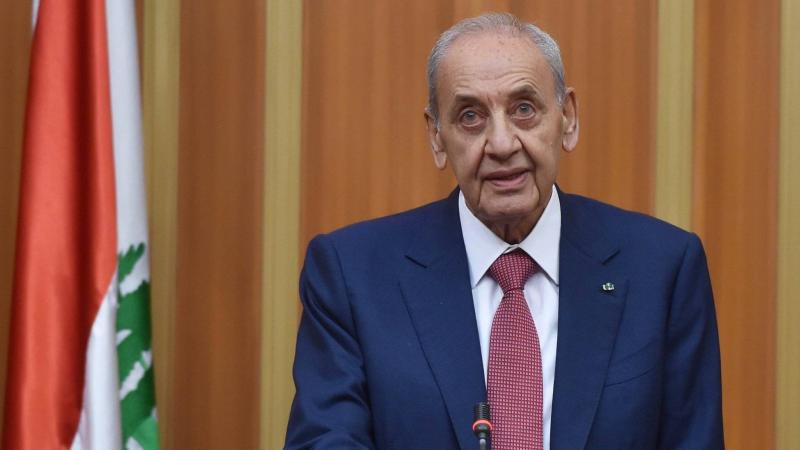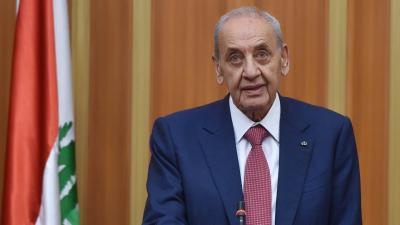A few days before the end of September, Lebanese hopes, amidst expectations and repercussions, appeared closer to a "bitter contemplation" regarding the futility of external movements or the restoration of cut ties between domestic parties, in light of Bkerke's (the Maronite Patriarchate) joining from the outside to a different vision from that of the Parliament Speaker for dialogue. The atmosphere seemed grim, even as President Nabih Berri continued to work on his initiative by receiving written responses, particularly from the heads of parliamentary blocs, with one item only: the election of a president.
It was revealed that President Berri sent official messages to both the "Strong Republic" and "Free Patriotic Movement" blocs. The response from the Lebanese Forces was a clear rejection, while the response from the Free Patriotic Movement came with a series of conditions deemed necessary, effectively aiming to exclude Berri from chairing the dialogue and rejecting any formula that ties the sessions to outcomes, settling for broad approaches or titles. This was seen by sources in Ain al-Tineh as an attempt to put obstacles in the way, absolving the Free Patriotic Movement of the consequences of disrupting the dialogue.
It is noteworthy that Berri sent his message to Gibran Bassil through MPs Alan Aoun and Elias Bou Saab. He also delivered a message to Lebanese Forces leader Samir Geagea via MP Melhem Riachi. President Berri confirmed that he would manage the dialogue.
The Qatari envoy, Abu Fahd Jassim Al Thani, was said to have met last night with the head of the Loyalty to the Resistance Bloc, MP Mohammad Raad, to inform him that the quintet and Qatar are inclined to nominate General Joseph Aoun for the presidency as a third option. If this is not feasible, the name of acting General Security Director Elias Baisari could be proposed.
Political sources informed "Al-Liwaa" that it was too early to evaluate the Qatari effort, which is still in its early stages, and that its effectiveness in changing the stagnation in the presidential file cannot yet be judged. The same sources pointed out that Qatar, along with the concerned countries in this file, desires to expedite the holding of elections, noting that the Qatari envoy is knowledgeable about the constitutional game.
They indicated that if any potential settlement were to be woven, it would not materialize immediately without clear positions being announced and the foundations of any settlement being crystallized, meaning no elections would take place. At the same time, they announced that there are negative views about this entitlements, and that the search for the third option has not yet begun.
The political sources did not deny reports of disputes between representatives of the United States and France during a recent meeting of the quintet committee, which includes the U.S., France, Saudi Arabia, Egypt, and Qatar, on the sidelines of United Nations meetings regarding the stalling of French envoy Yves Le Drian's mission to resolve the presidential election crisis in Lebanon. They mentioned that the American representative had requested from the French representative a specific timeframe to accomplish this task, emphasizing that time should not remain open indefinitely, as it is crucial to swiftly elect a president and form a new government to halt the ongoing collapse and restore the country on the right path, initiating a process of financial, economic, and living recovery.
The sources stressed that the disagreement between the French representative and the American representative had negative repercussions on the committee meeting, leading to a failure to issue a statement as was anticipated. However, this did not reach a point where the committee managed to reach an agreement among its members to end Yves Le Drian's role in resolving the presidential election crisis, assigning this task to Qatar, as some claim, coinciding with the positions announced by the Emir of Qatar from the United Nations podium regarding this matter.
It was confirmed that the agreement involved Qatar following up on the French initiative through its good relations with key political parties and its open channels with influential countries regarding the Lebanese situation, primarily the United States, Saudi Arabia, and Iran, which would facilitate cooperation to overcome difficulties and bring perspectives closer to reach shared visions that help resolve the presidential vacuum crisis and facilitate the election of a new president.
The sources anticipated that the French-Qatari movement would lead to Le Drian's return to Lebanon at the beginning of October to resume his mission, while the Qatari envoy, who has been in Lebanon for days, would have paved the way for this return by mitigating most of the challenges and fears obstructing the solution to the ongoing crisis. At that point, the movements of the two envoys would complement each other, aiming to reach an agreement among the concerned parties towards the desired solution, should the regional and international atmospheres and positions permit it.




